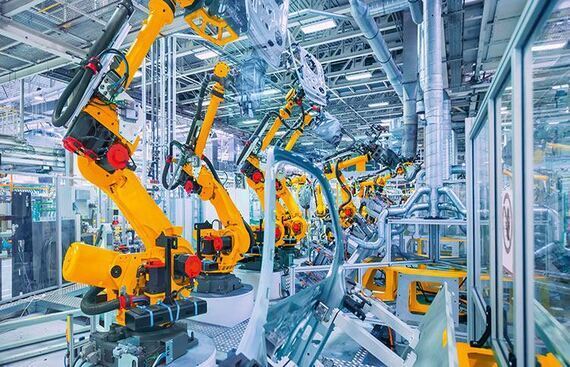How the New Industrial Policy strengthens the idea of "One Nation-One Standard"

A scheme that is launched with the aim of synergizing the standards adopted by a plethora of Standard Development Organizations in India, One Nation One Standard is a voluntary integration scheme of multiple standard formulating bodies that brings uniformity in the quality of goods and services that are produced in the country and that boosts the Brand India image.
The scheme was launched today in a joint virtual event organized by the Ministry of Railways and the Ministry of Consumer Affairs. Research Designs and Standards Organizations (RDSO), Lucknow has become the first organization in the country for achieving the status of joining the One Nation, One Standard scheme. The scheme was formulated under the bridge of the Bureau of Indian Standards and the talks are one with several other organizations including the DRDO and Indian Roads Congress among the rest.
Affairs Of Consumers In Unified Formulation Of Standards
Partaking in the event, Chairman Railway Board Suneet Sharma said that the initiative will increase the universalization of uniform standards across various sectors and the end user will benefit from the immense tense.
Secretary, Ministry of Consumer Affairs Leena Nandan also applauded the move and termed it a path break and historic. The ministry added that the scheme is participatory and will be pushing formalization of interactive and holistic standard mechanisms.
The unified standards formulated under the One Nation, One Standard scheme will be subjected to review at least once every five years in order to amalgamate evolutionary and positive changes from time to time.
The Indian Government set out their Resolution dated 6th April 1948 the policy which they proposed to pursue in the industrial field. The Resolution emphasized the importance of the increase with continuous fraction in production and its equitable distribution and pointed out the State must play of progressive active role in industrial development. The same has laid down the arms and ammunition, atomic energy, and railway transport, that would be the monopoly of the Central Government, whereby the State would be in exclusive responsibility for establishing the new undertakings in six basic industries, however, the national interest would help setting up the state its foundation in the necessary for securing the cooperation of private enterprising. The rest of the industrial field was kept wide with a gap of some meters for private enterprising. The flying scrupulous of a knave personality is high in inclined podiums of an alluring and donation of progressive participation.
Strategy For Public Utility
There has been an adoption of the socialist pattern of society as the national objective and the requisite for planned and rapid development and requirement for the importance or which is not in nature of basic and strategic importance or in the nature of public utility services, this should be added to other industries which are essential and require investment on a scale which could include the state, and in present circumstances that could provide and have the public sector supervision included to their authority.
The state, therefore, must assume the direct development of industries in a terrace that is limiting the factors which can make it necessary at this state for the developing the field in which it will be undertaking sole responsibility for the further dominant role. After considering all aspects of the problem in consulting the plan commission, the Government of India has decided for classifying industries into three categories, helping with regard to the part the state would play in each of the industry categories, having regard, the part State would play in each of the governing organizations.
Conclusion
Industrial undertakings in the private sector have the necessary fit into the framework of the social and economic policy of the state and will be subjected to control and regulations in terms of the industries (Development and Regulation) Act and other relevant. The Government of India, after recognizing the general desire for allowing such undertakings for the development of much freedom as possible, is consistent with the targets and objectives of the national plan. When there exist in the congruent industry both private and public units owned by the same governing organizations, it would continue to reinstall the policy of the state for giving fair and non-discriminatory treatment for both the private and public.
The Indian Government would, in this excellent contextual stress role of cottage and village, and small-scale industries in the development of the national economy. In relation to some of the problems that need urgent solutions, they are offered some distinct advantages. The providence of immediate large-scale employment offered a method of ensuring a more equitable distribution of the national income and facilitating an effective mobilization of resources of capital and skill that might otherwise remain unutilized. Some of the problems that are unplanned with urbanization tend to the creation of establishment of small centers of industrial production in India.
